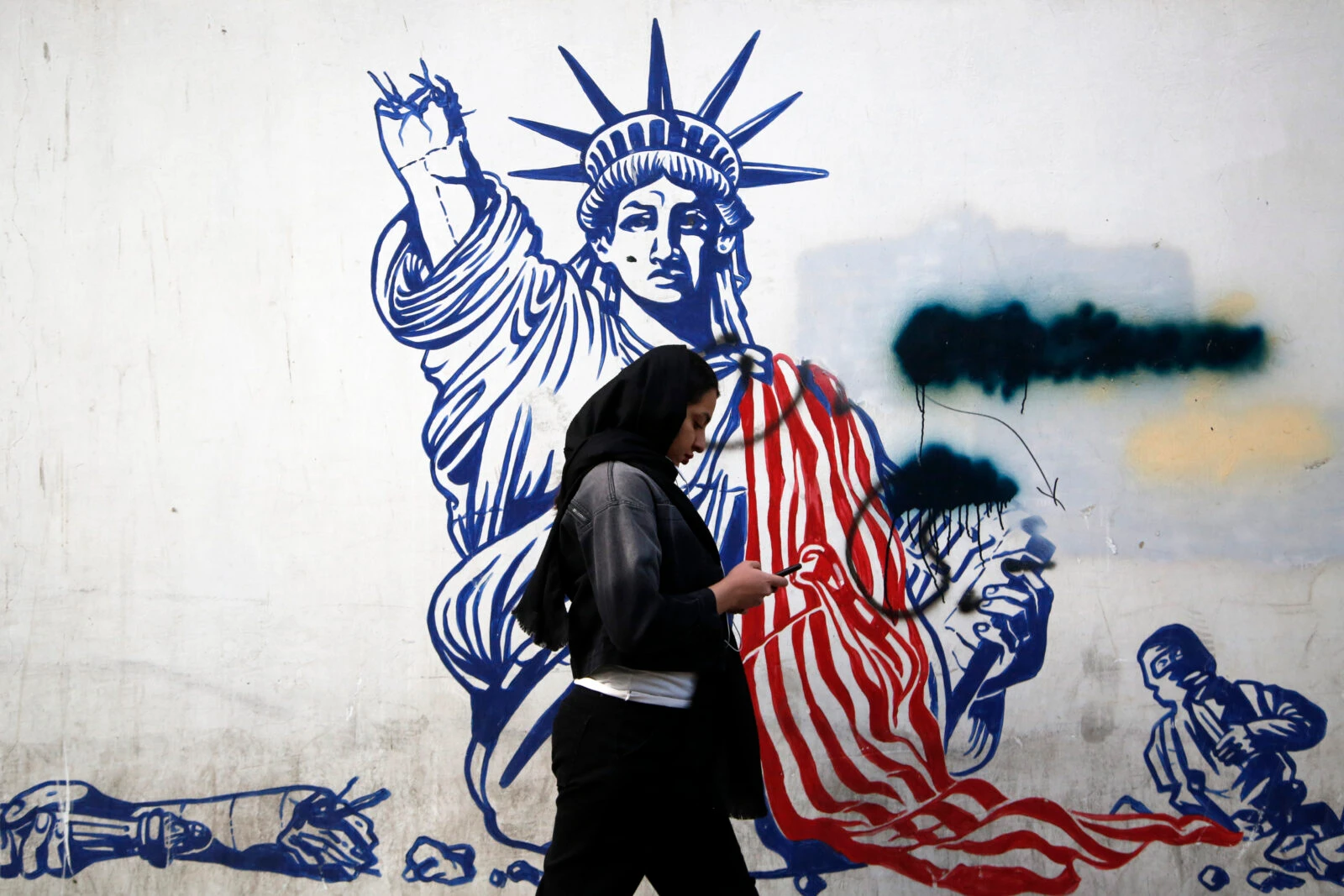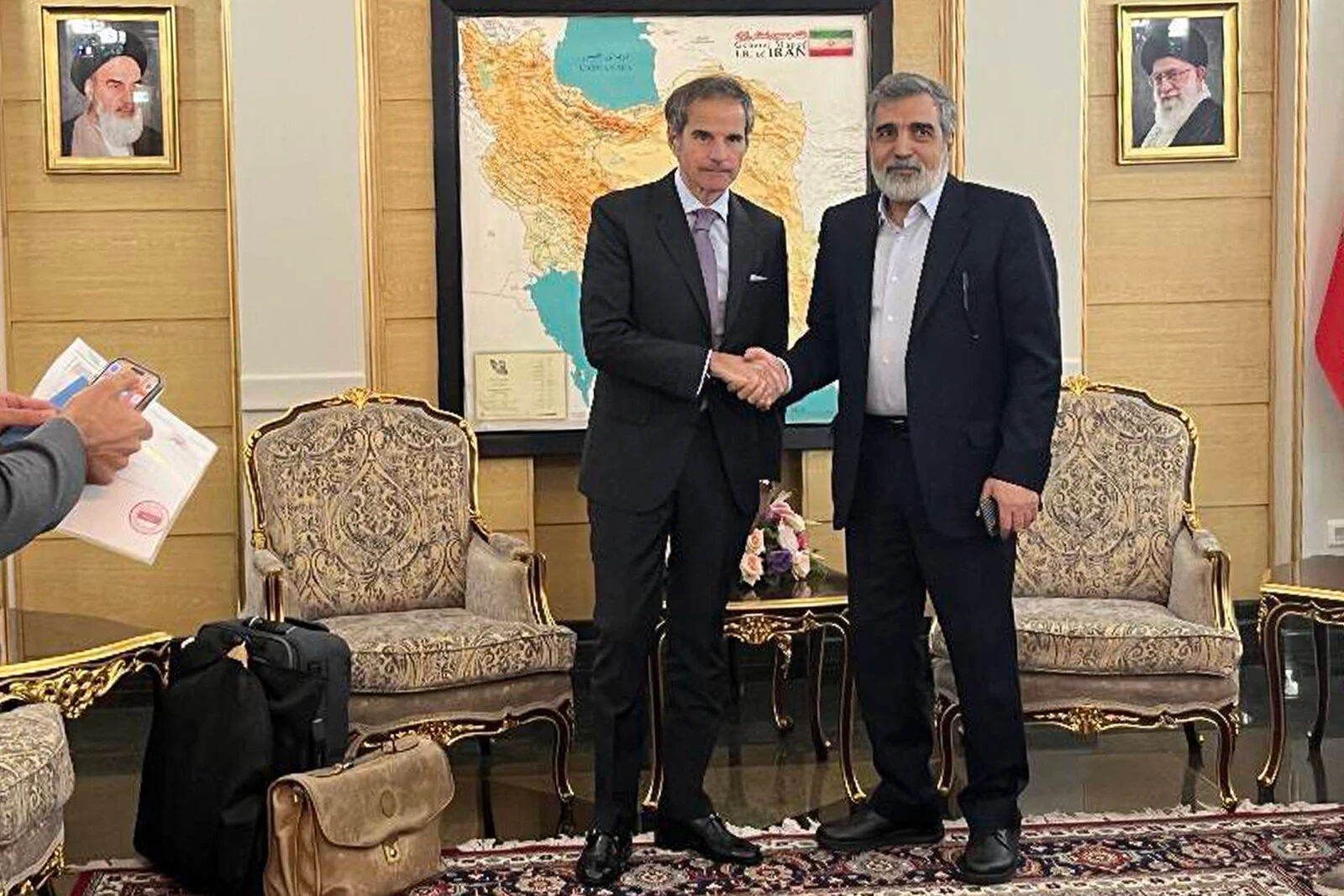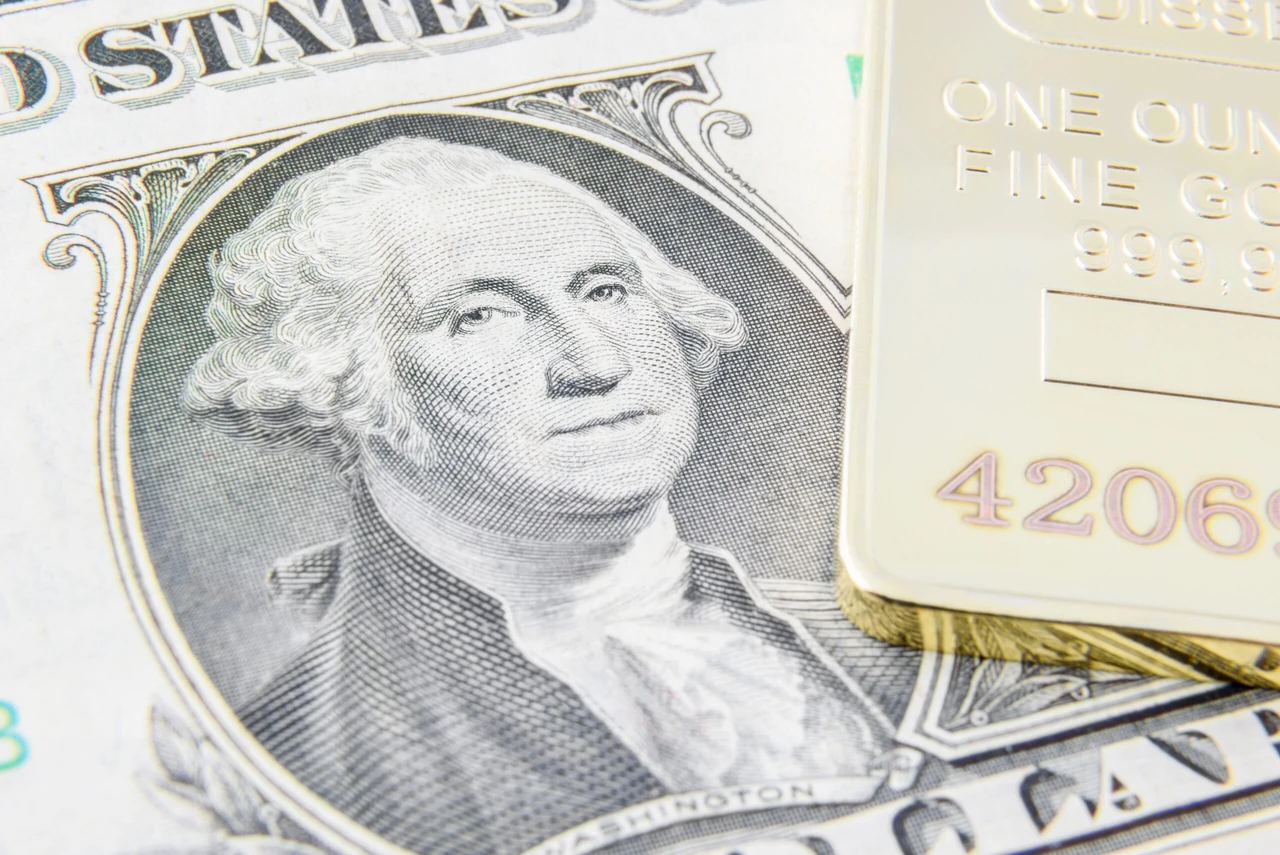Iran confirms Italy for 2nd round of US nuclear talks, replaces Oman
 A general view of a giant anti-U.S. mural as tensions between Iran and the U.S. continue while Iranians go about their daily lives in Tehran, Iran on April 06, 2025. (AA Photo)
A general view of a giant anti-U.S. mural as tensions between Iran and the U.S. continue while Iranians go about their daily lives in Tehran, Iran on April 06, 2025. (AA Photo)
Iran confirmed Wednesday that the second round of indirect nuclear talks with the United States will take place in Rome, replacing Oman as the original host.
Iranian state television announced that although the location has changed, Oman will continue its role as mediator during the negotiations, maintaining the same diplomatic framework established in earlier exchanges.
Although early reports suggested the second round would take place in Rome, Iran initially stated it would return to Oman. Wednesday’s announcement clarified the confusion, confirming Rome as the new host for the April 19 session.
Trump’s letter sparks dialogue
The renewed talks follow a letter sent in March by U.S. President Donald Trump to Iran’s Supreme Leader Ayatollah Ali Khamenei, urging direct negotiations and warning of potential military action should Tehran refuse. Iran responded via Omani channels, agreeing to indirect talks but rejecting pressure-based diplomacy.
On April 12, the two sides met in Muscat for the first round of discussions — the highest-level nuclear dialogue since the collapse of the 2015 nuclear agreement. Both Washington and Tehran characterized the meeting as “positive and constructive.”

Trump’s Middle East envoy, Steve Witkoff, added to the shifting landscape earlier this week when he told Fox News that Washington would tolerate uranium enrichment up to 3.67% — the limit set in the 2015 deal.
However, he quickly reversed course, stating that Iran must halt enrichment entirely.
Iranian Foreign Minister Abbas Araghchi responded, reaffirming Iran’s willingness to address international concerns but refusing to give up the right to enrich uranium. “This is a matter of sovereignty and national dignity,” he said.

Economic pressure and public reaction
The talks come amid the continued impact of Trump’s maximum pressure campaign, which has severely damaged Iran’s economy. The Iranian rial fell to a historic low of 1 million rials per dollar in recent months, marking a roughly 30% devaluation since Trump returned to office.
Following the April 12 talks, the rial rebounded sharply, strengthening to 850,000 rials per dollar, reflecting growing public optimism that diplomacy could ease the country’s economic isolation.
Despite the crippling sanctions, Iran has expanded its nuclear activities in recent years, signaling that pressure alone has failed to alter Tehran’s strategic direction.



